Daniel Larison, one of today's most astute political commentators and an Orthodox Christian (he attends this parish), has an interesting post commenting on President Obama's recent speech at Notre Dame, in which Mr Obama spoke on questions of faith and doubt. An excerpt from Daniel's post: Everyone is stricken with doubt at times, but it has to be understood that doubt, like an illness, is something from which one may suffer but which is something that needs to be remedied rather than perpetuated or celebrated. Physical illness can have a humbling effect, but a proper understanding of theological anthropology tells us that illness, like death, is part of our fallen state. Doubt is a function of a mind clouded by the passions–it is the result of confusion. It does not teach us anything, but rather prevents us from learning. It is important to see the difference between doubt and apophatic theology: one is the function of human confusion, the other is the necessary recognition of the unknowability of God in His essence. Obama misleadingly lumps the two together. As Obama would have it, because we cannot know God in Himself and cannot always understand what He wills for us we must therefore abandon all claims of certainty, even when these are founded in what God has told and revealed to us about Himself. Obama said, “It is beyond our capacity as human beings to know with certainty what God has planned for us or what he asks of us,” but only for the first part of this is true. What God asks of us is well-known. In the Psalms, for example, He tells us, “Be still and know that I am God.” He has not said, “Be ironically detached and suppose that I might very well be God, depending on how the mood strikes you.” We hide behind doubt and any number of other convenient shields to protect our little selfish empires from the demands that we know God makes of us. He has said, “Love the Lord thy God with all thy heart, and all thy soul and all thy mind and all thy strength.” What He asks of us is quite clear. Indeed, if there is anything we can say that we know with certainty, it is this.
Daniel Larison, unul dintre cei mai abili comentatori şi un creştin ortodox, a făcut un comentariu interesant despre discursul preşedintelui Obama la Notre Dame, în care dl Obama vorbeşte pe tema credinţei şi a îndoielii. Un pasaj din articolul postat de Daniel :
« Fiecare are îndoieli câtedată, dar trebuie înţeles că îndoiala, ca şi boala, este ceva de care unul poate suferi, însă de care e nevoie să se vindece, mai degrabă decât să perpetueze situaţia sau să se bucure de ea. Boala fizică poate avea un efect benefic, de smerire, dar o înţelegere corectă a antropologiei teologice ne demonstrează că boala, ca şi moartea, este o componentă a stării noastre căzute. Îndoiala este o funcţie a unei minţi întunecate de patimi – e rezultatul confuziei. Nu ne învaţă nimic, ci mai degrabă ne împiedică să învăţăm. E important să vedem diferenţa dintre îndoială şi teologia apofatică : una este rodul confuziei umane, cealaltă, necesara recunoaştere a incognoscibilităţii lui Dumnezeu în esenţa Sa. Obama le amestecă pentru a ne induce în eroare. În viziunea lui Obama, deoarece nu-L putem cunoaşte pe Dumnezeu în esenţa Lui şi nu putem întotdeauna şti care este voia Lui cu noi, noi trebuie să abandonăm orice pretenţie de certitudine, , chiar când acestea se întemeiază pe ceea ce Dumnezeu ne-a revelat despre Sine.. Obama a spus : « Este mai presus de puterile noastre omeneşti să ştim cu siguranţă ceea ce Dumnezeu vrea pentru noi sau cere de la noi », dar numai prima parte a spuselor lui este adevărată. Ceea ce Dumnezeu ne cere este bine cunoscut. În Psalmi, de exemplu, El ne spune : « Taci şi cunoaşte că Eu sunt Dumnezeu ». El nu a spus : « Fii degajat în mod ironic şi presupune că Eu aş putea foarte bine să fiu Dumnezeu, depinde cum ai tu chef ! » Ne ascundem în spatele îndoielilor şi al unui număr de scuturi protectoare convenabile ca să apărăm micile noastre imperii egoiste de cererile pe care Dumnezeu ni le adresează. El a spus : « Să iubeşti pe Domnul Dumnezeul tău din toată inima ta, din tot sufletul tău şi mintea ta, şi din toate puterile tale. » Ceea ce El ne cere este foarte clar. Dacă putem spune că ştim ceva mai presus de îndoială, aceasta este. »
Sursa materialului:




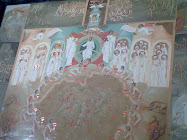


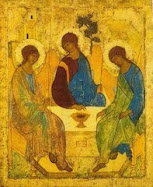

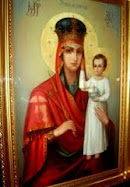


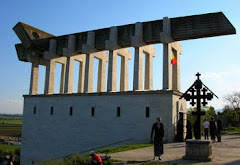





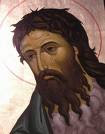











Niciun comentariu:
Trimiteți un comentariu